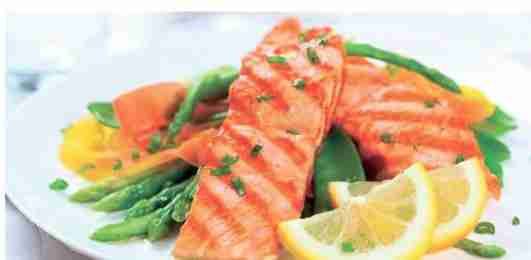Quality eating makes a significant difference at every stage of life.
By HEALTH MARKETS
If you haven’t had a conversation with your doctor about high cholesterol levels, pat yourself on the back. About a third of Americans have higher than recommended levels of “bad” cholesterol, called low-density lipoprotein (LDL). High cholesterol is serious business—it increases your risk of heart disease twofold. But there’s good news: simple changes to your diet can make a big difference when you are trying to lower cholesterol levels.
WATCH OUT FOR SATURATED AND TRANS FATS.
Saturated fats are the number one offender when it comes to increasing bad cholesterol levels. Trans fats, on the other hand, are so destructive to heart health. In fact, the FDA mandated they’d be phased out of the food supply by 2018. The action is projected to prevent an estimated 20,000 heart attacks and 7,000 deaths per year. By all means, don’t wait until 2018 to cut trans fat from your diet. Check nutrition labels for saturated or trans fats, and keep them to an absolute minimum.
SELECT YOUR CUTS OF MEAT CAREFULLY.
Choose lean meats, such as beef round, chuck, loin, or sirloin. For pork, tenderloin or loin chops are healthiest. Chicken or turkey make better options than fattier fowl, such as duck or goose, and white meat is better for you than dark. Avoid pieces of meat with a lot of visible fat, and trim fat before you start cooking.
BE SMART WITH MEAT PREP.
In addition to the meat you choose, the cooking technique you use can be good or bad for your cholesterol. Remove skin from poultry before preparing it—you can baste with wine, fruit juice, or broth to keep the meat moist and juicy. Broiling on a rack is a better option for your heart health than frying meat in a pan.
CHOOSE FISH WHEN YOU CAN.
Fish is a great alternative to other meats, whether it’s fatty or lean. Even the seafood highest in cholesterol, shrimp and crawfish, are better for you than most other meat options. Select healthy preparations—baked, boiled, grilled, or broiled instead of breaded or fried.
GO MEATLESS, OR USE LESS MEAT.
You may be shocked to learn that cholesterol comes only from meat—it’s one of three parts of the diet that can increase your LDL levels, causing high cholesterol. (The other two are saturated and trans fats.) Whether you do Meatless Monday, choose an entirely vegetarian diet, or just use smaller portions of meat when you cook, going lighter on meat is a good choice for your cholesterol. The American Heart Association suggests incorporating meat “sparingly and just for flavor, rather than as a main ingredient.” Consider going vegetarian for the holidays or another set period as a trial.
TAKE A MEDITERRANEAN APPROACH TO MEALTIME.
People who eat a Mediterranean diet see dramatic results when it comes to heart health. A 2015 study reported that people on a Mediterranean diet were almost half as likely as those on other diets to develop heart disease in a 10-year period. Ekavi Georgousopoulou, one of the researchers, remarked, “People around the world could easily adopt this dietary pattern and help protect themselves against heart disease with very little cost.” Eating Mediterranean—which means emphasizing fresh produce, fish, whole grains, nuts, and legumes cooked with olive oil—is even more effective than exercise at keeping your heart healthy. It’s no wonder doctors often suggest this nutrition plan for patients who would benefit from lowering cholesterol with diet.
REPLACE DAIRY PRODUCTS OR FATTY CONDIMENTS WITH AVOCADO.
Avocado provides a creamy dose of potassium and fiber and helps fill you up, making it a natural substitution for less healthy ingredients. One study determined avocado a day as part of a healthy diet helped lower LDL levels for overweight people. Switch your standard mayonnaise or cheese for a luscious layer of avocado in a sandwich, or spread mashed avocado on toast for a balanced, butter-free breakfast. Guacamole is a culinary classic, but exchange chips for more nutritious veggies when you dip. You can even swap avocado for part of the butter in your favorite chocolate chip cookie recipe or other homemade baked goods.
Be wary of too-good-to-be-true supplements.
Exercising, maintaining a healthy weight, eating a balanced diet, and—when needed—taking prescription medication are all accepted treatments for unhealthy cholesterol levels. But when it comes to dietary supplements, there’s no magic pill for high cholesterol numbers. Scientific evidence doesn’t back up the cholesterol benefits of red yeast rice, flaxseed, or garlic you’ll sometimes hear discussed.
We’ve covered a lot of ways you can try to lower cholesterol with diet. But don’t feel overwhelmed—just a few of these choices can make a big difference for your heart health. Pick two or three to incorporate today, or try several and pick the ones that fit your lifestyle best.













No Comment